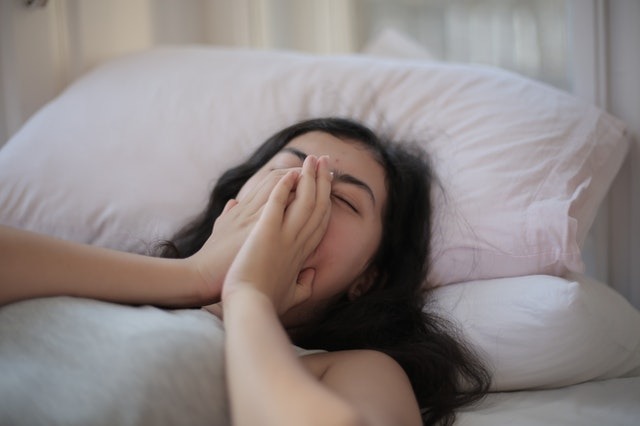“My brain just won’t turn off.” That’s how it feels for many people suffering from insomnia and other sleep problems. The body, and even the mind, can feel totally exhausted. But once the person lays down to go to sleep, it’s as though the brain jumps into overdrive. Now scientists have found that this “racing brain” phenomenon is no mere metaphor. For people with insomnia, often the brain actually does switch into high gear (what scientists call “hyperarousal” or increased metabolism) just as — you guessed it! — the person is trying to go to sleep. Can this higher rate of metabolism be countered? And if metabolism in the brain is slowed, does that help bring sleep?
Insomnia: This is your brain on hyperarousal
Scientists at the University of Pittsburg researched ways to resolve insomnia and other sleep problems without drugs. According to Medscape, this research grew out of brain-imaging studies that showed that, in insomniacs, metabolism in the brain’s frontal cortex actually sped up right before the person fell asleep and during the first (Non-Rapid Eye Movement) stages of sleep.
A report in Bio-Medicine also stated that a related part of the brain, the hypothalamus, has two types of cells that may become easily over-excited. In fact, these cells can “maintain a state of sustained arousal that can lead to sleeplessness as well as overeating.” This report confirmed what many people experience: “the more stress the body undergoes on a routine basis,” the lower the threshold for over-exciting these cells falls.
Clearly, stress causes more stress. And, like a row of dominoes, this stress can end up in a big pile in the front of the brain — leading to the dreaded “car chase” feeling just as you’re otherwise trying to settle down for some restful sleep.
Insomnia: It’s not just psychological
Psychological approaches, including Cognitive Behavior Therapy, for insomnia, are more effective and accessible than ever. But the University of Pittsburg research shows that insomnia has a metabolic component as well — and this metabolic component can be countered with specific physiological strategies. According to Medscape, this finding that brain metabolism itself can be targeted is a provocative, new way to think about insomnia and how to resolve the misery insomnia causes.
Targeting brain metabolism to counter insomnia
According to the Daily Mail, Professor Eric Nofzinger, who led the University of Pittsburg research, “found insomnia patients have increased activity, especially in the frontal cortex. Essentially, their brain cells continue to work at full capacity at night when they should be resting.” Scientists found that cooling the brain lowered its activity level (metabolism). Professor Nofzinger reported that brain cooling resulted in “an increase in deeper, restorative sleep, feelings of relaxation and a reduction in distracting thoughts before sleep.”
How do you cool the brain?
In the Pittsburg study, scientists used a cooling cap to lower brain metabolism. The cooling cap “pumps a liquid coolant round the front of the scalp and the forehead. This chills the prefrontal cortex, a part of the brain thought to play a role in prompting deep sleep.” Various devices and methods of cooling the brain have been part of medicine for a long time. But this was the first time such a device had been used to study sleep.
Don’t have a brain cooling cap available? Fortunately, according to the Daily Mail, “British sleep specialists say there are simpler ways to cool the body to aid sleep. Professor Jim Horne, from Loughborough University, says that a bedside fan that blows cool air over the face can help.” Besides bedside fans, chill pads and chill pillows — with and without ice packs — also can help lower frontal brain activity to more sleep-conducing levels. And don’t rule out Grandma’s old standby: a wet cloth to the forehead for several minutes. Cool down to chill out, and may the Zzz’s be with you!
Sources:
Jim Kling, “SLEEP 2009: Cooling of Frontal Cortex May Help Counter Insomnia,” Medscape.
“Brain cells associated with insomnia and obesity,” Bio-Medicine.
Pat Hagan, “The blast of cold air that cures insomnia,” Daily Mail.

